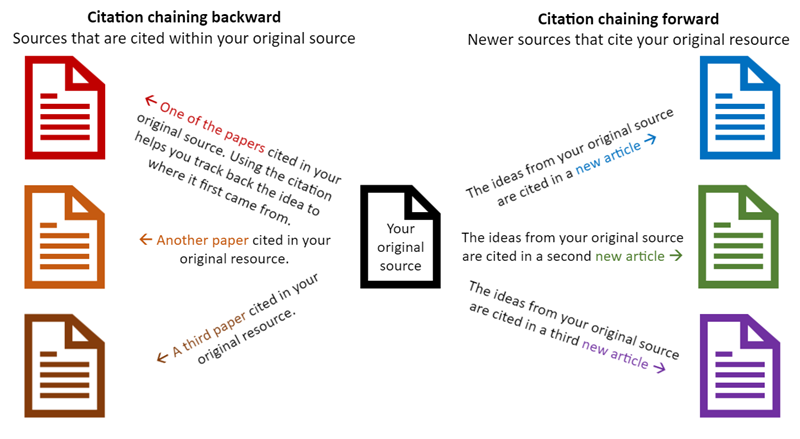Citation chaining helps you find papers by following direct citations through a chain of scholarly articles. It helps you trace the development of a research idea or theory over time.

Image Credit: Iowa State University Library Instruction Services. (2021). Library 160: Introduction to college-level research. Press Book. https://iastate.pressbooks.pub/lib160/chapter/using-citations/
Citing and cited articles can be labeled in the search systems (Library's Primo, Google Scholar, Web of Science, Scopus, Semantic Scholar, etc.)
If you are searching in library discovery Primo, the icons will appear in the result list...
... and at the article records page
 The AI Tools for Research and Study guide is licensed under a Creative Commons Attribution-NonCommercial-ShareAlike 4.0 International License.
The AI Tools for Research and Study guide is licensed under a Creative Commons Attribution-NonCommercial-ShareAlike 4.0 International License.
Credits: The AI Tools for Research and Study guide includes content from Literature Discovery through Citation Chaining and Mapping, by Aster Zhao, of the Hong Kong University of Science and Technology licensed under a CC BY 4.0